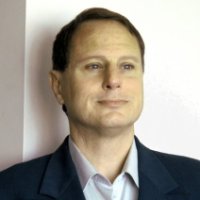
The open software movement is a reaction to the corporate dominance over participation and exclusion.
Corporations today are deciding who is allowed to participate in building the future and who is not. The process of choosing who is included and who is excluded is far from a perfect. Once a choice is made, though it was made in one context, it remains in force for the duration of employment in whatever context may arise.
The act of exclusion itself is a social weapon with a thousands nuances. During the financial crisis, for example it was common practice to only hire new employees who already had jobs. People are often unfairly excluded as companies choose those who have been through esoteric training programs, friends of current employes, those who are dressed nicely, and a number of other factors not related to competency. People who are excluded may suffer great damage, lose their housing, and fail to support their families. Ultimately, we must ask the question as to why corporations have this power to exclude participation in the first place.
The open software movement is a reaction to the corporate dominance over participation and exclusion. Richard Stallman rebelled against this tyranny, and despite the fact that his friends were included in private sector projects leaving him alone in the halls at MIT – he programmed anyway. He didn't just program but he created masterpieces such as GCC and Emacs. He didn't stop there, but went on to organize a full scale rebellion to smash the tyranny and to make software free. Long live Free Software!
Open software has lead to some great things, but it is not a utopic situation. Often times programmers must eat, pay the rent, or pay the power bills. They must gain access to hardware. Programming professors must be paid. Often times these costs are covered by parents, the state, research grants, school loans, and other jobs, but these are ephemeral subsidies. At some point the student graduates and starts having to pay bills himself or herself, or more typically, in my experience, the girlfriend says enough is enough, and pulls the plug. Unfortunately, while open software projects make participation available to some people who would otherwise be excluded, the level and type of subsidies still excludes those who have mounting financial obligations with age.
Having been at AMD for a decade I know that some companies have professional engineers writing software which is to be given away in support of the paid for hardware, and that some companies sell services. Note the conflict of interest here, as we are strongly motivated to make sure that software works with our hardware, and that the customer is always going to need those services. Support is not typically considered to be the interesting programming job and customers would rather not go through it. When possible we should be avoiding this, not programming towards it. These are not the ideal traits for promoting participation.
For the sake of those programmers who are caught between the open software model and the corporate model I am proposing a third option for participation. This of course is not to replace free or open source software (vivent des logiciels libres!), but rather to provide an avenue of participation for those who are affected by the limitations of the current models. I call the new model the open startup.
There is not space here to describe the whole of the project, but let me give you some idea. There is a central website where people meet. The open startup does not work in secret, but rather the project management PERT or GANTT charts have open task bars. There is a project manager like figure, a committee, or a democratic process orchestrating the project. People who wish to participate request qualification from the project manager for specific tasks. Anyone can come, peruse the site and tasks, and then request qualifications. Should the request be accepted the person receives the description, supporting material, and then delivers the work product associated with the task. As a result of this delivery, the person receives either shares in the project, company coins, promissory letters for shares, or other type of reward that can be monetized when the company has revenue.
The goal of this model is to make it possible for programmers to develop financial inertia over time, and thus remain engaged in the culture during a long successful career – a career that is not dominated by the whim of an HR department, nor one requiring taking on a support role.
I plan to go further, in also addressing the problem of the exclusive and non-participatory attribute of patents. Open startups will agree to preformed open startup patent agreements and product agreements. These allow other open startups to optionally use IP and products from all open startups cost free until a time their own project has revenue, and then after that time for a reasonable fee that was determined when the preformed agreement was created. There are no surprises or lengthy negotiations required for the use of open startup IP, instead it can be shopped and used as though from a catalog.
I'm looking for participants in the first open startup, i.e. that of the open startup itself. The initial task is to put together a steering committee which will make basic decisions for the project. I am partial to developing in Dr. Racket, but open to discuss other platforms. There will be front end, middle, and back end related programming tasks. Please contact me if you are interested.
Thomas W. Lynch
thomas.lynch@reasoningtechnology.com



